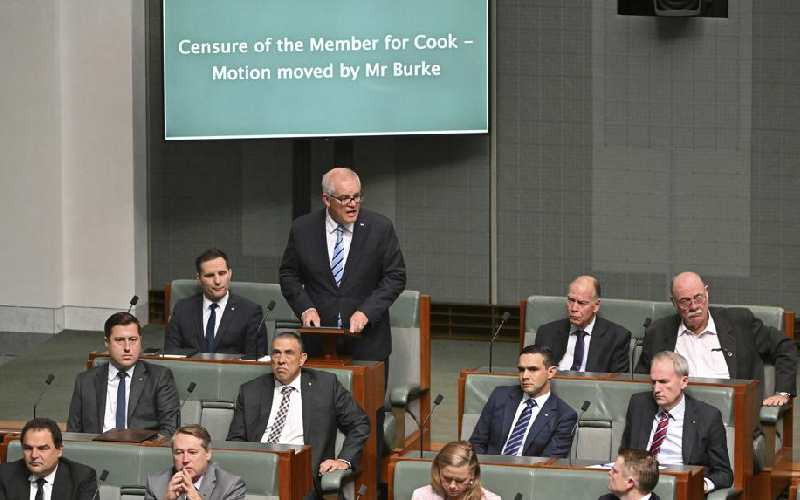
Australia's former Prime Minister Scott Morrison on Wednesday listed his achievements in government including standing up to a "bullying" China as he unsuccessfully argued against being censured by the Parliament for secretly amassing multiple ministerial powers.
The center-left Labor Party government introduced to the House of Representatives a rare censure motion against Morrison, who as a conservative prime minister took the unprecedented steps of appointing himself to five ministerial roles between March 2020 and May 2021, usually without the knowledge of the existing minister.